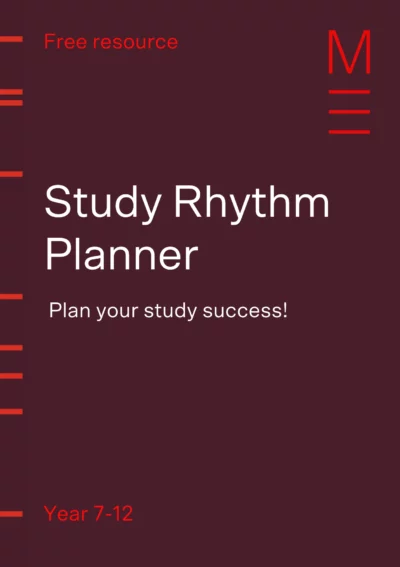Change your location
To ensure we are showing you the most relevant content, please select your location below.
Select a year to see courses
Learn online or on-campus during the term or school holidays
Learn online or on-campus during the term or school holidays
Learn online or on-campus during the term or school holidays
Learn online or on-campus during the term or school holidays
Learn online or on-campus during the term or school holidays
Learn online or on-campus during the term or school holidays
Learn online or on-campus during the term or school holidays
Learn online or on-campus during the term or school holidays
Learn online or on-campus during the term or school holidays
Learn online or on-campus during the term or school holidays
Select a year to see available courses
Science guides to help you get ahead
Science guides to help you get ahead
Chasing a high ATAR and your dream uni course? Year 12 student Sathanika shares the 6 HSC study strategies she wishes she knew sooner.

Join 75,893 students who already have a head start.
"*" indicates required fields
You might also like

Join 8000+ students each term who already have a head start on their school academic journey.
Let’s keep this short and sharp. If you’re chasing a top ATAR, this article is for you. Dearest reader, my name is Sathanika Thivagaran and I am a Year 12 student at James Ruse Agricultural High School. Here are 6 must-follow HSC study strategies I wish someone had told me earlier, including some harsh truths that may be tough to come to an agreement with.
Ultimately, your study journey is uniquely and beautifully unique, and you may choose not to engage with some of the tips in this list. Think of it as a set of highly-recommended suggestions to secure your chances of getting into that dream degree at your dream university – from someone who’s playing the same game as you.
Now, without further ado, let’s begin!
Table of contents:
For some of you, this may be unthinkable. But understand that the HSC grind is not to be taken lightly.
While you can pick up your extracurriculars again next year, you only have one shot at the HSC. Your time is precious, and time management is paramount this year.
You can pick up your extracurriculars again next year, but you only have one shot at the HSC.
However, this doesn’t mean you’ve got to go cold turkey on leisure activities. Not at all! However, you can take this 3-step plan to strategically build in leisure time into your busy schedule:
Learn with expert teachers
Get ahead with courses led by subject matter experts. See why 8000+ students trust Matrix every term.
It doesn’t matter if you don’t know all the content yet. Aim to do what you can and to test yourself consistently.
A trial question each day for each subject can cause MEGA IMPROVEMENT in the long term.
You may not see the fruits of your labour until the end, when it counts, but consistent testing is crucial for:
Unfortunately, the HSC exam is not like it was 10 years ago, where you could just memorise the formulas/content and be set. There’s now a big focus on synthesising information from given information, mixing skills from multiple modules, and very clearly explaining how you got to a certain answer.
Which means you’ve got to prioritise sharpening your skills as well as knowing the content from cover to cover. This is where many students fall short and how you can leverage your study style to sharpen your tools for the exam.
Because, after all, what’s the point of a tool if you don’t know how to use it?
Don’t bother “saving questions for later” – there are so many that you won’t get through them all. So don’t hold back. Use them now. Practice beats perfection.
If you’re in Year 10 or 11, then by all means go ahead and find what’s best for you.
But, among the group of effective study techniques, it really doesn’t matter which one you choose as long as you are CONSISTENT.
Use the holidays to solidify the ONE technique or set of techniques and use it over the rest of the year. Do whatever you’ve got to do to commit information to memory.
It doesn’t have to be the next new thing. It just has to work for you specifically. Structured Matrix courses help many students stay consistent with weekly tasks and feedback loops.
Hot tip: notes aren’t that effective (see: Tip 4).

Notes may work sometimes (and if they work for you, then keep going). But consider the following:
I fell into the trap of making my notes very neat and organised… and then never looked back at them. Notes are a huge time-sucker and, well, time is money. Sure, you have some tangible final output, but you’re a student, not a photocopying machine.
If you do write notes, they should be:
If you’re simply transferring information from one source (e.g. slideshow, textbook) to another, you’re wasting your time.
You need to show the marker how deep your understanding is and adapt it to any question they throw at you. This means that the skill of answering exam questions is highly important, and yet it is so neglected. You’ve got to prioritise sharpening how you use your knowledge, not just what you know.
Refer to Tip 2 for what the HSC specifically targets.
I know you’re probably rolling your eyes and have been told this a million times. But prioritising your mental health, while insanely difficult, has merit.
If you skip this, all the hard work you’ve been pouring into your studies may as well go down the drain.
This is going to be one of the hardest years yet, and you will feel down at times. Make sure you have a friend/family member to talk to, practice mindfulness techniques, or keep a journal this year.
You need a sense of security when things don’t go the way as planned. You don’t want to crash and burn when something goes wrong, so if it does, you’ll be prepared to set aside some time for yourself to recover and get back into the swing of things.
Personally, I’ve struggled with exam panic for most of my life, and I’m only starting to understand and slowly unravel it. It’s just so frustrating when you spend most of your days studying tirelessly only to have your mind blank during the exam and get even the easiest of questions incorrect. I’ve talked to countless people over the years and have tried so many things.
I’ve realised that mental health is such a personalised space and it requires much time to ensure that it doesn’t turn its back on you and take a physical toll. Please take care of yourself.
You are overstimulated. Social media is the number one reason.
Here are the steps to take to cut out social media altogether:
This is pretty extreme and definitely not a requirement if you want to do well. In fact, discipline is much more powerful. But, I do think that this detachment has significantly increased my quality of life as I notice and appreciate more in my day, have an increased attention span, and have fostered even stronger relationships by prioritising spending time with friends/family in person. I don’t think I’ll go back to using a smartphone, as I don’t see much need for it and am enjoying a life free of constant stimulation.
The point isn’t to make your life miserable by cutting out what makes you happy. That’s actually counterproductive. But you want to set limits so that they don’t take over your main goal (Your dream degree!)
I hope you gained at least one valuable insight from this article. I wish you all the best of luck and success in your HSC journey.
Let’s all achieve our dream ATAR to get into our dream degree at our dream university!
A step-by-step planner to maximise you time for study and play! Fill out your details below to get this resource emailed to you. "*" indicates required fields
Get your free Study Rhythm Planner

Get your free Study Rhythm Planner
Written by Matrix Education
Matrix is Sydney's No.1 High School Tuition provider. Come read our blog regularly for study hacks, subject breakdowns, and all the other academic insights you need.© Matrix Education and www.matrix.edu.au, 2025. Unauthorised use and/or duplication of this material without express and written permission from this site’s author and/or owner is strictly prohibited. Excerpts and links may be used, provided that full and clear credit is given to Matrix Education and www.matrix.edu.au with appropriate and specific direction to the original content.